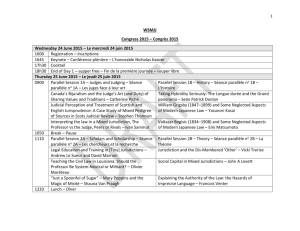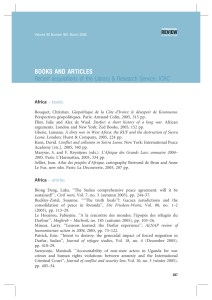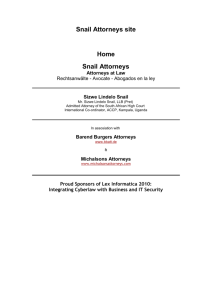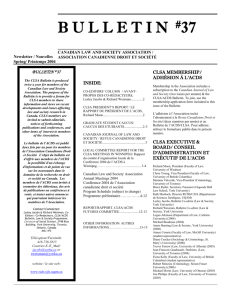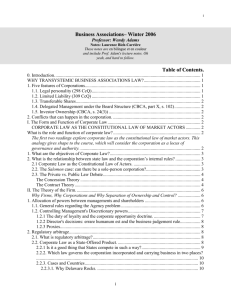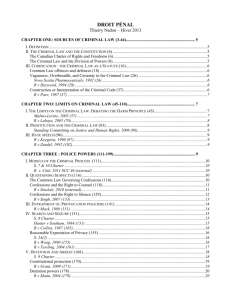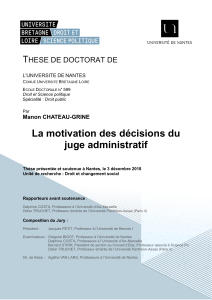Judicial system in France and the French National School for Judiciary
advertisement
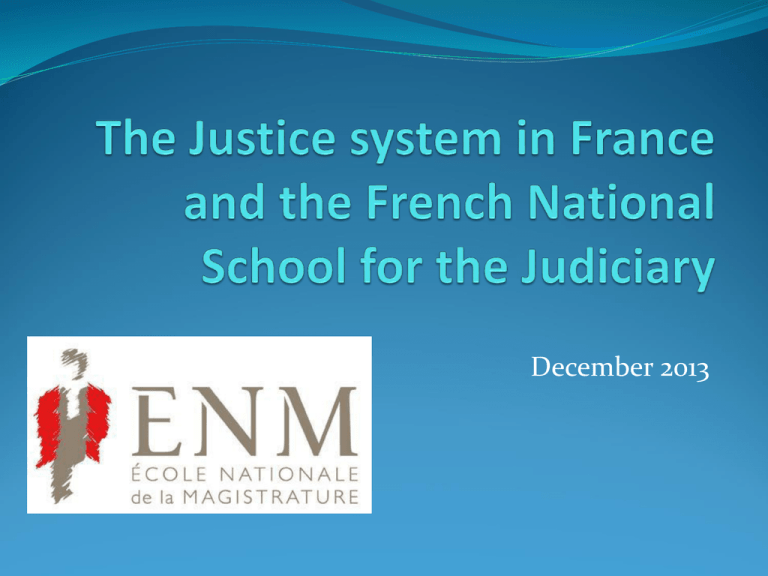
December 2013 Duality of the Justice system Judicial stream Administrative stream Court of conflicts Judicial stream 1/First level of jurisdiction Civil courts Criminal courts Specialized courts: employment tribunal, commercial tribunal Juvenile justice 2/Second level of jurisdiction Court of appeal Facts assessment + law application 3/Supreme Court Cour de cassation No facts reassessment; application; unity of case law law Administrative stream 1/First level of jurisdiction Administrative courts (persons/authority; public person/public person) 2/Second level of jurisdiction Administrative appeals court 3/Supreme Court Conseil d’Etat (Council of State) Acts of government; appeals; unity of administrative case law Traditional architecture Modern architecture The Court room The Judge’s robes at the Court at the Court of Appeal The Prosecutor’s robes at the Court at the Court of Appeal The Lawyer’s robes Established in 1958 under the name of National Centre of Judicial Studies. Current name adopted in 1970. Located in Bordeaux, in the south west of France. Contributes to the initial and life-long training of foreign judges and prosecutors. Several ways of becoming a judge or prosecutor After 4 years of law studies, 31 years old maximum Civil servant for 4 years Have worked in a company for 8 years, aged 40 maximum Article 18-1: 4 years of experience, 4 year law degree, aged 31 minimum and 40 maximum Competitive recruitment French judges’ training 31 months Studies 27 weeks of studies Internships 22 weeks in private practice 1 week with police officers 2 weeks in jail 10 months as a trainee judge in a court 7 weeks in a foreign country or in a French firm Final ranking Preparatory class for our first judicial appointment Judges in civil law Juge d’instance (First instance judge) Juge aux affaires familiales (Family Court judge) Juge des enfants (Juvenile judge) Judges in criminal law Juge d’instruction (Investigating judge) Juge des libertés et de la détention (Judge in charge of custody and release) Juge de l’application des peines (Judge in charge of prison sentences) Juge des enfants (Juvenile judge) Prosecutors - Subordination in the chain of command - Indivisibility of the prosecution service - Unchallengeable legitimacy of public prosecutors
